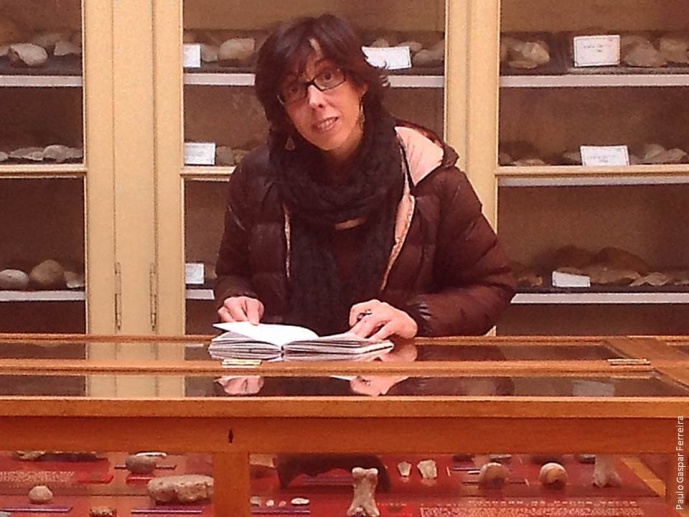Catarina Jorge Ginja
Auxiliary Researcher
Currently, I hold a research contract (IF2014) to work at InBIO-CIBIO and I aim to perform a phylochronological genetic study to unveil the origins, evolutionary trajectories and modes of improvement of Iberian and North African domestic animal species. By making use of ancient DNA methods, I propose to study key species (cattle, pig and sheep) to cover a wide range of processes and investigate post-domestication changes in inheritable traits. Heterochronous genetic data allow a direct investigation of changes within populations over time, and of the patterns of admixture between wild and domestic animals.
As a Marie Curie fellow (2011-2015), I gained expertise in zooarchaeogenetics through intensive training in reference research groups and was highly successful in recovering DNA from remains collected in Iberia as old as 16,000 years. I am interested in using high-throughput sequencing methods to design a refined set of genetic markers that captures temporal and geographical changes in the population dynamics of domestic animals from Iberia and North Africa. I perform analyses at the genome level to rule out ascertainment bias resulting from the use of genetic markers selected in highly inbred modern genomes.
I completed my PhD degree in Animal Breeding and Genetics from Universidade Técnica de Lisboa in 2009, and worked as a Research Assistant at the University of California in Davis (2008-2010). I described a number of novel SNP-STR haplotypes in the cattle Y-chromosome to investigate male-mediated gene flow. I carried out broad research on the genetic diversity and population structure of Iberian livestock species, by making use of multiple markers, and described the phylogenetic relationships between Iberian breeds and their Creole counterparts of the Americas.
I collaborate with national Breeder Associations to define conservation and management programs, and I am the chairperson and cattle representative of the FAO/ISAG Committee on Farm Animal Genetic Diversity (since July 2014).
